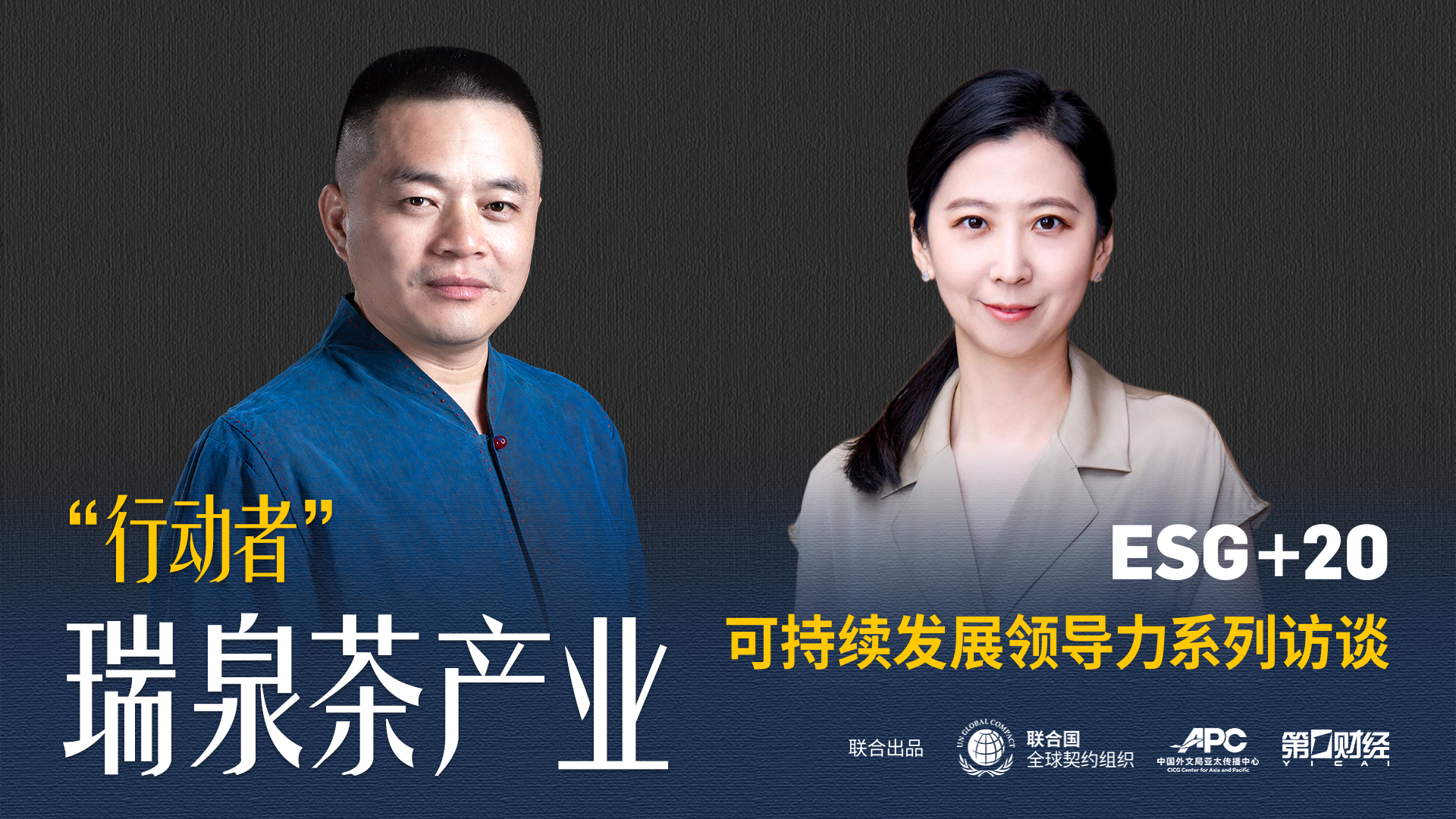
(Yicai) Oct. 31 -- [Editor’s note] With the implementation of international environmental, social, and governance standards, industrial development has entered a new era.
Last year marked the 20th anniversary of the ESG concept. At this important historical juncture, the United Nations Global Compact, the Center for Asia-Pacific at China International Communications Group, and Yicai jointly launched the ‘ESG+20 Sustainable Development Leadership Interview Series.’ This series explores the insights, achievements, and leadership of Chinese businesses in sustainable development and corporate social responsibility through dialogues with Chinese entrepreneurs and on-site visits.
In this episode of the ‘ESG+20 Sustainable Development Leadership Interview Series,’ we spoke with Huang Shenghui, chairman of Fujian Ruiquan Tea Industry and curator of the Ruiquan Rock Tea Museum. Ruiquan Tea joined the UN Global Compact last year.
Ruiquan Tea is produced from leaves cultivated on the Wuyi Mountains in Fujian province, the birthplace of black tea and oolong tea. The Huang family’s tea-making history can be traced back over 300 years, and the trade name ‘Ruiquan’ has been passed down to the 12th generation. “Tea runs through our veins,” Huang said.
The advantages brought by modern technology to the tea industry are not only increasing output but also enabling the precise analysis of tea compounds, fully demonstrating its quality and maximizing its value, Huang told Yicai.
Technology empowering the tea industry involves improving production to raise output and quality, he noted. “We have conducted data research, such as soil research, ecological research, and technological research on seedlings.”
Modern technology can detect the components in tea and evaluate its quality, Huang explained. For example, a master taster can perceive the aroma of orchids when tasting tea, but technology can detect 168 different types of aromas in tea. “This is what we cannot perceive only through taste.”
When it comes to the modern operation of the tea industry, the priority is to ensure quality, according to Huang. During his over 20 years of management experience, he has worked on ecological management -- soil management and ecological protection -- and accumulated excellent tea mountain resources.
The second most important goal is to build a culture because only with culture can there be value, he pointed out. In the core production area of the Wuyi rock tea, he built the only privately-owned rock tea museum in China.
“We need to protect these over 300 varieties of oolong tea and create some new high-quality varieties in the future,” Huang noted. “This will enable the wealth-creating industries for rural revitalization to reach tea farmers and bring them greater benefits.
“Ruiquan Tea has established in-depth cooperation with universities and research institutions to innovate tea varieties and ecological management,” Huang said.
Ruiquan Tea is building a Ruiquan Cultural Expo Park of over 56,000 square meters, which will comprehensively showcase the thousand-year-old tea culture through technologies, such as artificial intelligence.
“Enterprises should not only pursue economic benefits but also focus on long-term social value and ecological balance, and take on long-term responsibilities for the environment and society,” Huang added.
Editor: Futura Costaglione